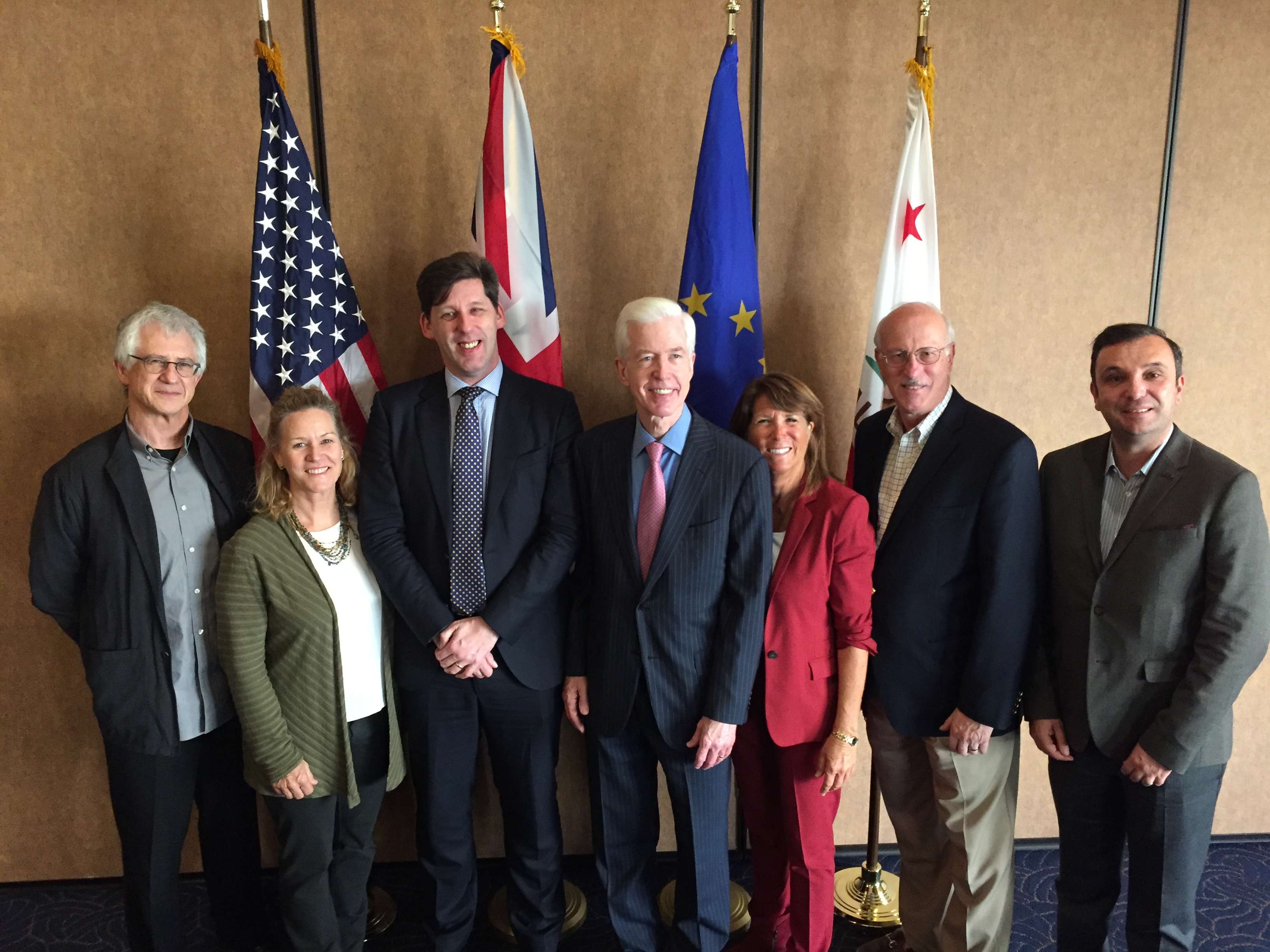EU, CHINA AND CALIFORNIA LEADERS FOCUS ON EMISSIONS TRADING SYSTEMS
On February 11th the Institute hosted Dr. Ian Duncan, Member of the European Parliament, and lead author on the Parliament's report exploring reforms to the European Union’s carbon emissions trading scheme. Joining Dr. Duncan were leaders from across California that helped develop and manage the State’s successful cap and trade program. Governor Schwarzenegger and leadership from the Institute and R20 met Dr. Duncan while at the COP21 Climate Summit in Paris. At that meeting Dr. Duncan asked the Institute to host a Los Angeles forum where he could have a substantive conversation on emissions trading and learn firsthand about California’s experience in enacting and managing a large scale cap and trade system.
The robust discussion included participants from the California Air Resources Board, the Climate Action Reserve, Governor Gray Davis, county supervisors, state legislative staff, Chinese leaders from NDRC, as well as leading academics from UCLA and USC. Dr. Duncan provided an overview of the difficulties faced by the European Union and what he described as a “broken emissions trading system”.
Duncan explained that the European Union’s emissions trading scheme is not working efficiently for a variety of reasons including; the system oversupplied carbon allowances in an effort to avoid negative economic impact, fallout from the global financial market downturn, and the EU’s 28 sovereign states all needing to agree on actions.
He sought suggestions from California leaders on how to address these issues as he and his colleagues look at reforming the European system.
Among the suggestions that resonated with Dr. Duncan were:
– Creating a “carbon price floor”.
– Communicating the issue in ways that resonate with the citizens by making it more local and relatable like focusing on air quality and health.
– Strategic use of the funds raised – Currently the funds are sent back to the member nations with no restrictions on their use, and has resulted in most funds not supporting any low carbon projects or renewable energy infrastructure.
While setting an appropriate price for carbon emissions was a central focus of the discussion, including how to avoid “carbon leakage” where large carbon emitting business moves to another region where carbon price is lower, there was also considerable discussion on other policies that significantly contribute to emission reduction while also supporting low carbon job growth and the innovation economy. The European Union is especially interested in the California policies that have resulted in over 71,000 new jobs being created in clean tech alone between 2010-2016, more than the 69,000 total jobs in coal throughout the entire United States.


